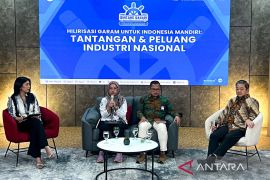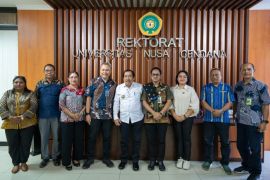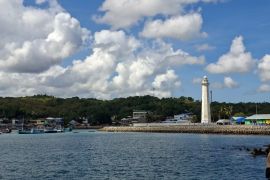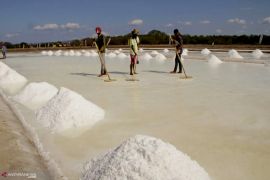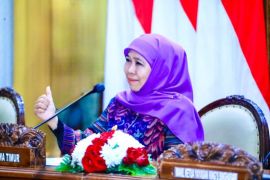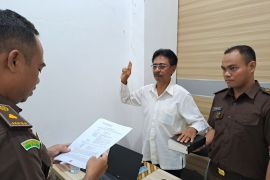
Articel - NTT wants to become national salt production center
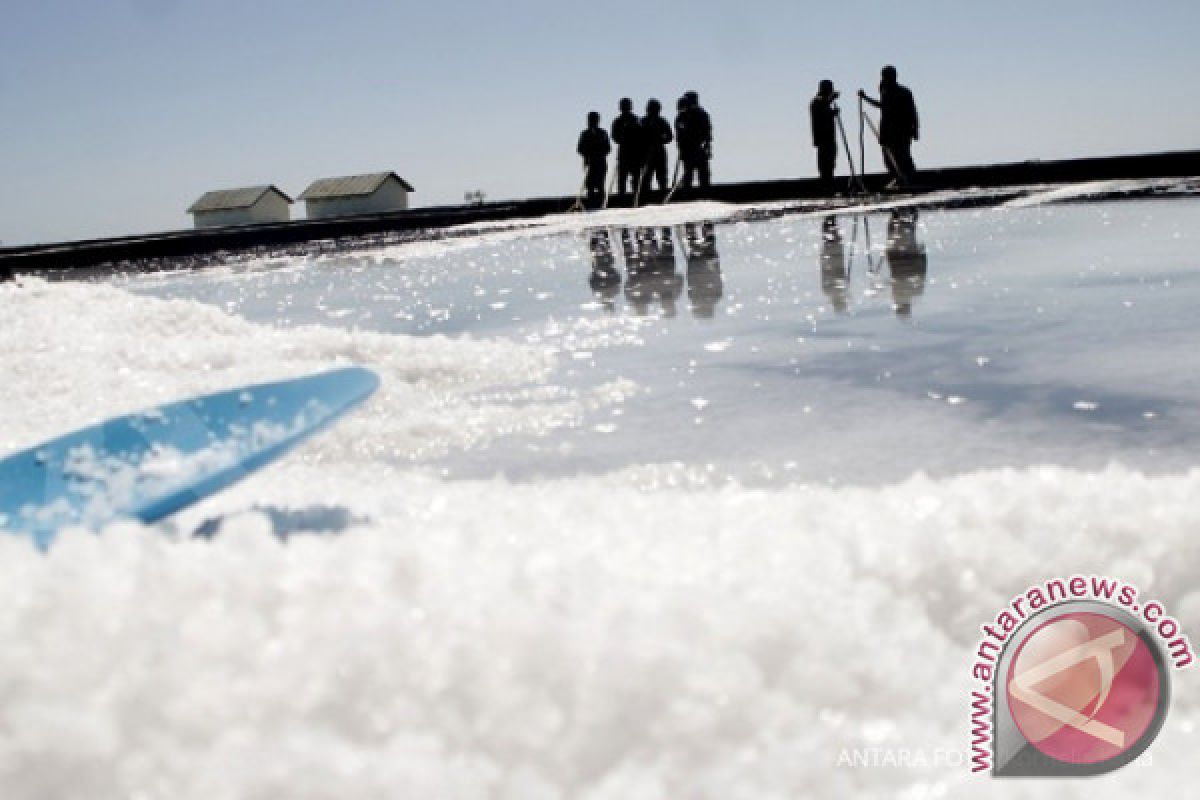
Lands potential to be converted into salt farms in the islands of East Nusa Tenggara (NTT) are estimated to reach a total of 60,000 hectares.
Kupang, E. Nusa Tenggara (AntaraNews NTT) - Lands potential to be converted into salt farms in the islands of East Nusa Tenggara (NTT) are estimated to reach a total of 60,000 hectares.
However, only a small part of the potential has been utilized to produce salt for which the country still depends heavily on imports. Indonesia`s salt consumption totaled around 4.2 million tons in 2017, both for industrial and consumption salt.
Salt farms on the island of Timor are estimated to reach 6,363 hectares , but only 400 hectares are managed professionally by the state-owned salt company PT Garam Indonesia in the village of Bipolo, sub-district of Sulamu, in the Kupang district; and 1,000 hectares owned by local farmers.
In the district of Timor Tengah Selatan, there are 1,000 hectares of land potential for salt farms but only 10 hectares have been used by locals farmers. Similarly in the district of Sumba Tengah, only around 2 hectares of 100 hectares of potential lands available in that area have been utilized for salt farms.
In the district of Alor , there are around 27 hectares of salt farms as against 100 hectares of potential lands. Lembata has around 75 hectares of lands potential for salt farms but so far,that area has only 6 hectares of salt farms, and in Sumba Timur, utilization is relatively high. That district has 100.4 hectares of land potential for salt farms and 80 hectares of them have been utilized.
Meanwhile, in the district of Rote Ndao, there are only 51 hectares of salt farms or only a little more than 5 percent of the potential lands of 1,000 hectares available there. In the district of Malaka with potential lands of 20,000 hectares has only 5,915 hectares of salt farms. In the district of Sabu Raijua, which has 700 hectares of potential lands, there are only 121 hectares of salt farms.
Baca juga: NTT offers investment in salt, seaweed to Australia, Timor Leste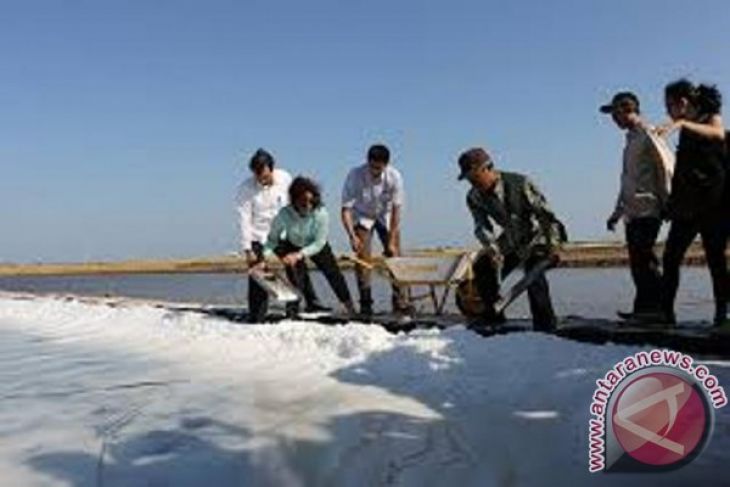
The districts of Ngada, Sumba Barat Daya, Ende, Sikka, Flores Timur, Manggarai Timur and Nagekeo have a total of 6,120 hectares of lands potential for salt farms but altogether, the districts have only a total of 447 hectares of salt farms.
Altogether , the province has the potentials to produce up to 9,665 tons of sea salt per year. The largest producer is the district of Sabu Raijua with a production of 9,000 tons annually, followed by the district of Nagekeo with production of 300 tons a year.
"With the facility offered by the government we hope investors would be attracted to do business in the region to exploit the potentials in salt processing industry and make NTT a national salt production center," says Bernard Haning, head of the Agro and Chemical Industry Division of the Industry Service of NTT.
Development of salt industry in NTT seems to follow the national policy to support the program of self sufficiency, whereas, self sufficiency in salt supply needs only operation of 20,000 hectares of salt farms.
By August, 2017, salt farms operated professionally by a number of investors in the province totaled only 343.6 hectares producing 7.883.52 tons of salt a year. The salt farms are located in the districts of Kupang, Ende, Timor Tengah Utara, Alor, Sumba Timur, Manggarai, and Nagekeo.
Production of industrial salt is relied mainly on professional producers like PT Garam Indonesia , which has salt farm and factory in the village of Bipolo, in the district of Kupang. The state company began operation with an investment of Rp4.5 billion to be increased to Rp10 billion; and PT Chetam Garam Flores, which has 56 hectares of salt farms in the district of Nagekeo.
Baca juga: Garam Dunia to invest Rp1.8 trillion in salt project in NTT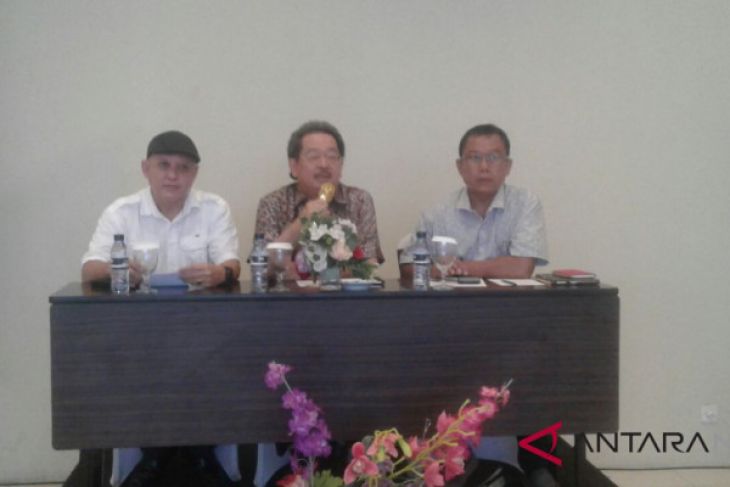
Industry Minister Airlangga Hartarto said salt is a strategic commodity widely needed in almost all sector. There are consumption and industrial salt. Industrial salt is needed by industries such as chemical, food, beverage, pharmaceutical and cosmetic industries as well as in oil drilling.
The Industry Ministry said the country needs to import 3.7 million tons in 2018, industrial salt. "This is a challenge for salt producers to reduce dependence on import," Industry Minister Airlangga Hartarto.
Airlangga said Indonesia has a number of regions potential to be developed into salt production centers such as Nagekeo in Flores of East Nusa Tenggara.
The quality of salt is measured not only on its natrium chloride (NaCl) content . Good quality salt has a 97 percent content of NaCL with calcium and magnesium contents not exceeding 600 ppm and with low water content. This quality standard of salt is needed for various food products and caustic soda.
The salt needed in pharmaceutical industry for infuse and blood cleaning liquid is one with a NaCl content of 99.9 percent.
Airlangga said he was confident that salt processing industry could contribute significantly to the country`s economic growth. He said production of salt locally will earn the country around Rp1,200 trillion in added value of the 3.7 million tons worth around Rp1.8 trillion of industrial salt to be imported this year.
In addition production of industrial salt and derivatives would provide jobs for 3.5 million workers and turn out an estimated US$5.5 billion in foreign exchange income a year from the exports of industrial products using industrial salt, the minister said.
Baca juga: Indonesia`s Salt Production Falls Short of Target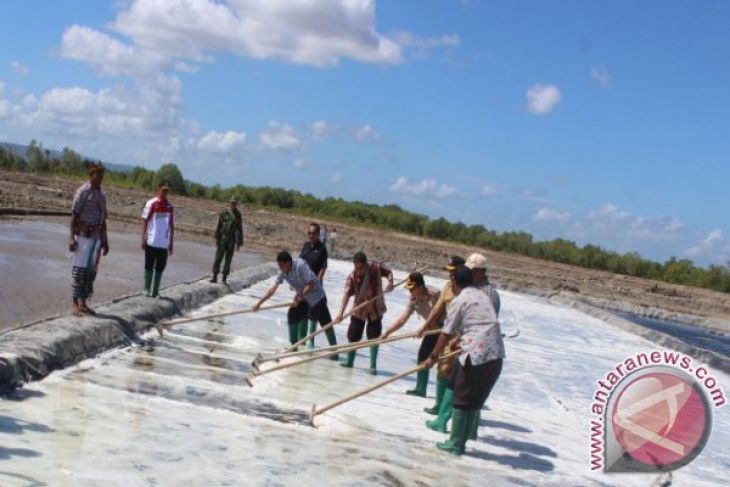
Therefore, President Joko Widodo (Jokowi) has said the government will provide greater facility for investments in salt processing industry in Indonesia.
Director General of Textile Chemicals and Multifarious Industries Achmad Sigit Dwiwahjono said the country`s imports of 3.7 million tons of industrial salt this year would be supplied to caustic soda plants including 2,488,500 tons for petrochemical and paper industries, 6,846 tons for pharmaceutical and cosmetics industry and 740,000 tons for fish salting, leather tanning, animal feed, textile and resin, oil drilling, soap and detergent industries.
The country`s production is still far short of the domestic consumption especially for industrial salt that large imports are still needed this year.
Salt imports have triggered lengthy polemics on difference in calculation especially between the Marine and Fisheries Ministry and the Industry Ministry. Calculation by the Marine and Fisheries is based on production , but the Industry Ministry based its calculation on industrial requirement.
The Marine and Fisheries Ministry tends to see and protect the interest of salt producers including farmers and PT Garam, while the Industry Ministry tends to see and protect interest of industries.
The Marine and Fisheries Ministry, therefore recommends only imports at 2.1 million tons, but the Industry Ministry said the country needs to imports 3.7 million tons.
The Law No.7 of 2016 on Protection and Empowerment of Fishermen, Fish Farmers and Salt Farmers, rules that imports of salt needs recommendation of the Marine and Fishery Ministry. Indonesia imports salt from Australia, India and Germany.
Earlier this year, the government said it was developing 40,000 hectares of new salt farms in eastern Indonesia and making more efforts to improve salt processing in the country to reach self sufficiency in 2020.
"We are opening up new salt farms in eastern Indonesia and intensifying efforts to improve salt processing technology in existing farms in Java and Madura," the Maritime Affairs Coordinating Ministry`s natural resources deputy Agung Kuswandono was quoted as saying.
The new salt farms are located in East Nusa Tenggara and on a few islands around Ambon in Maluku. "We`re not only opening up new farms but also new factories with the BPPT`s (Technology Assessment and Application Agency) help," Agung said.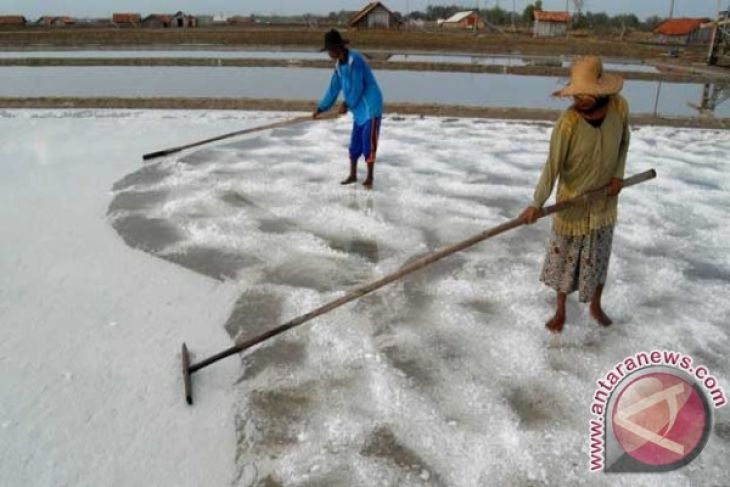
Pewarta : Laurensius Molan
Editor:
Laurensius Molan
COPYRIGHT © ANTARA 2026

